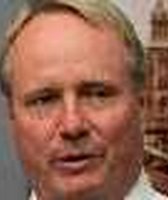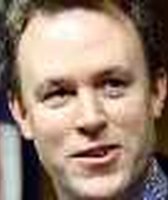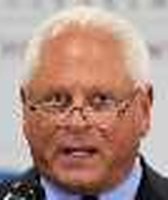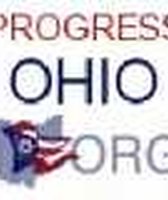Stand up for the facts!
Our only agenda is to publish the truth so you can be an informed participant in democracy.
We need your help.
I would like to contribute
U.S. House Speaker John Boehner says new business startups are at the lowest levels in 30 years
Its fate in the Senate and its potential economic impact remain unclear, but the Jumpstart Our Business Startups Act, or JOBS, produced a rare show of bipartisanship when it was passed by the House of Representatives on March 8. House Republicans and the White House cooperated on the Republican initiative, after larger jobs measures stalled.
Sponsors said they hoped the bill would lift the low approval ratings of Congress. House Speaker John Boehner said he hoped it would make it easier for small firms to raise investment capital.
The West Chester Republican said it would help to encourage job creation in Ohio and elsewhere "at a time when new business startups are at the lowest levels in 30 years."
Thirty years goes back to the recession of the early 1980s, which would make sense. But PolitiFact Ohio had also seen a recent report that business startups were booming. We asked Boehner's office for more information.
They pointed us first to a recent study by the outplacement consulting firm Challenger, Gray & Christmas Inc. The study found that the number of unemployed managers and executives starting their own businesses in the second half of 2011 failed to rebound from the record lows recorded over the first half of the year.
The study also cited numbers from the U.S. Bureau of Labor Statistics showing that "it's not just the unemployed who seem turned off -- self-employment in general has decreased significantly during the recession." The BLS reported there were 8.6 million self-employed Americans in July 2011, compared to almost 10 million in June 2007, prior to the recession.
Boehner’s staff additionally referred us to an article in Bloomberg Businessweek reporting that many indicators of startup activity are at record low levels. The per capita rate of formation of firms with employees in 2009, the most recent year tracked by the U.S. Census Bureau, was less than half its 1977 level.
Those figures, however, seemed at odds with the Kauffman Index of Entrepreneurial Activity, a widely cited annual study measuring U.S. business startup activity at the individual owner level. It comes from the nonpartisan Kauffman Foundation, which works to foster entrepreneurial activity.
Its latest report, issued March 19, said that the rate of new business creation dipped during 2011, but still remained "among the highest levels of entrepreneurship over the past 16 years," and showed that "entrepreneurship is alive and well in the wake of the Great Recession."
A previous report of the Kauffman Index said that more Americans had started businesses since the start of the recession than at any period over the previous decade and a half.
Wondering how this apparent conflict could be explained, we asked a leading authority on the subject: Scott Shane, chairman of the economics department and professor of entrepreneurial studies at Case Western Reserve University.
The numbers do look contradictory, he said, but they measure different things. Using an analogy, "it's like measuring water in a bathtub."
The Kauffman Index, he said, uses data from the monthly Current Population Survey (CPS) of the Census Bureau and Bureau of Labor Statistics to measure the percentage of the adult population, not self-employed, starting a business each month.
Using the bathtub analogy, he said, it's like putting a meter on the faucet -- the Kauffman Index measures the water's flow.
The Bureau of Labor Statistics figures, meantime, track the number of people who are self-employed, Shane said -- it's like measuring the water level in the tub -- and that number has declined, because of the people who quit self-employment. (Or who, extending the analogy, go down the drain.)
But more pertinent to the employment issue addressed by the JOBS Act and Boehner, Shane pointed out that there are two types of businesses: employer firms, which have employees, and non-employers, which do not.
Non-employer firms are 80 percent of U.S. businesses, but have much less economic impact, Shane said. Employer firms account for 97 percent of gross domestic product.
Using data from the Census Bureau and U.S. Small Business Administration, Shane found that the per capita rate of new employer business formation in 2009 (the most recent year available) was 1.32 per thousand people -- "an astonishing 51.4 percent of the rate in 1977," he said. "That is, Americans are starting new businesses with employees at half the rate they did 30 years ago."
Not only the rate, but the raw numbers have declined, he said. In 1977, SBA figures show, Americans started 563,325 businesses with employees. In 2009, despite an increase in the population, they started 403,765.
And no previous valleys dipped so low. A spreadsheet from Shane shows that neither the rate nor number of startups since 1977 ever hit the most recent level.
On the Truth-O-Meter, Boehner's statement that new business startups are at the lowest levels in 30 years gets a rating of True.
Our Sources
House Speaker John Boehner, "New business startups are at the lowest levels in 30 years," March 7, 2012
Reuters, "US lawmakers, in rare show of unity, pass small business bill," March 9, 2012
New York Times, "With November in Mind, House Passes a Jobs Bill," March 8, 2012
Email from Boehner press office, March 13, 2012
Challenger, Gray & Christmas, Inc., "Lowest start-up rate on record as jobs, fragile economy deter entrepreneurism," Feb. 14, 2012
Orange County Register, "U.S. startups hits 25-year low," Feb. 25, 2012
Huffington Post, "Startup Activity Among Unemployed Hits 25-Year Low -- Lowest Level On Record," Sept. 1, 2011
Bloomberg Businessweek, "Americans Must Get Back to Starting Businesses," Dec. 16, 2011
Kauffman Foundation, "New Business Startups Declined in 2011," March 19, 2012
Email from Kauffman Foundation, March 19, 2012
The Hill, "Record growth among entrepreneurs in U.S.," May 20, 2010,
Small Business Trends, "Contrary to What You May Have Read, the Recession Hasn’t Been Good for Entrepreneurs," June 14, 2010
Interview with CWRU Professor Scott Shane, Ph.D., March 20, 2012
Email from Scott Shane, March 20, 2012
Federal Reserve Bank of Cleveland, "The Great Recession’s Effect on Entrepreneurship," March 24, 2011
U.S. Bureau of Labor Statistics, Labor Force Statistics from the Current Population Survey
U.S. Small Business Administration, Office of Advocacy
Rate of startups spreadsheet
Browse the Truth-O-Meter
More by Tom Feran
U.S. House Speaker John Boehner says new business startups are at the lowest levels in 30 years
Support independent fact-checking.
Become a member!
In a world of wild talk and fake news, help us stand up for the facts.
























































